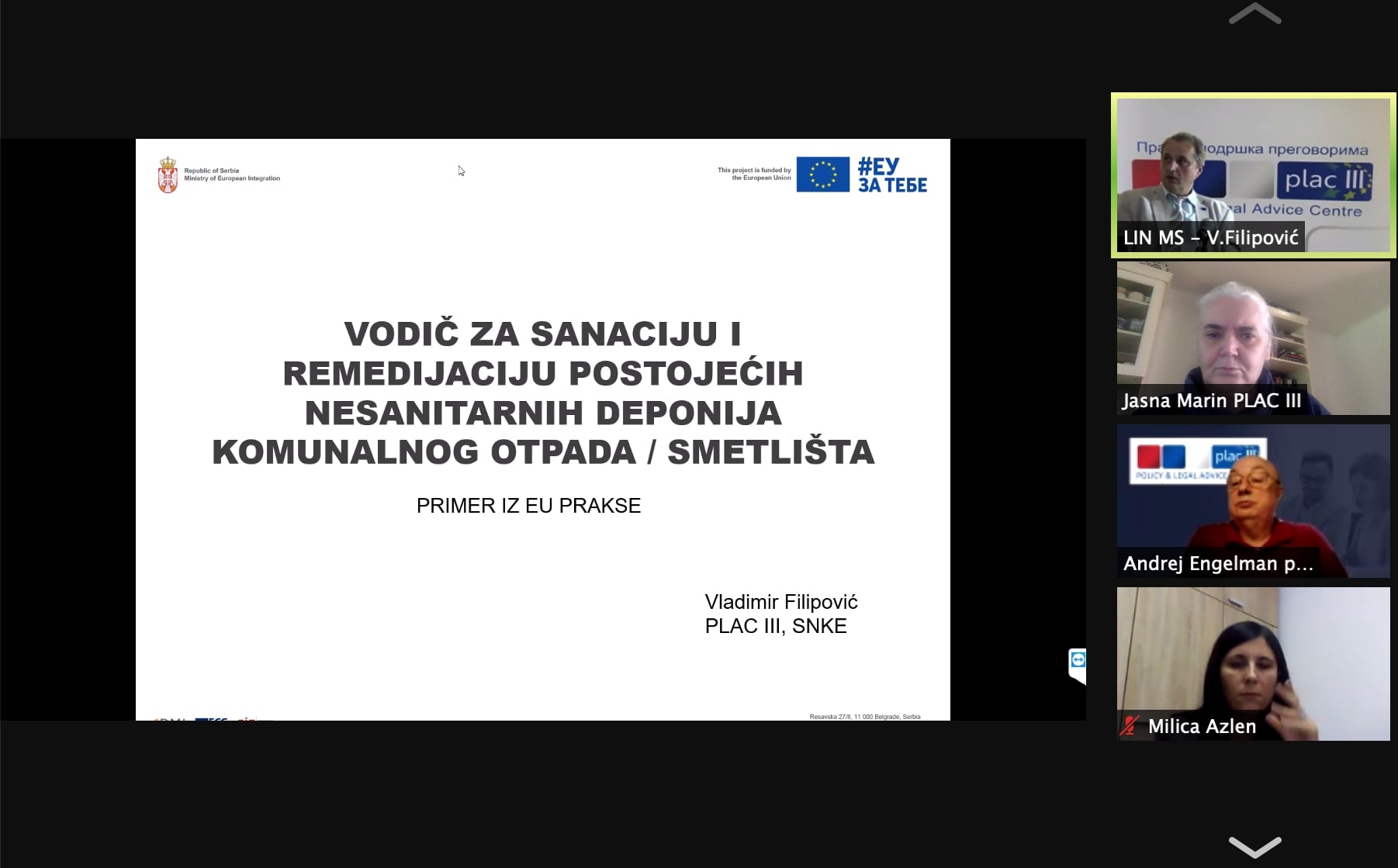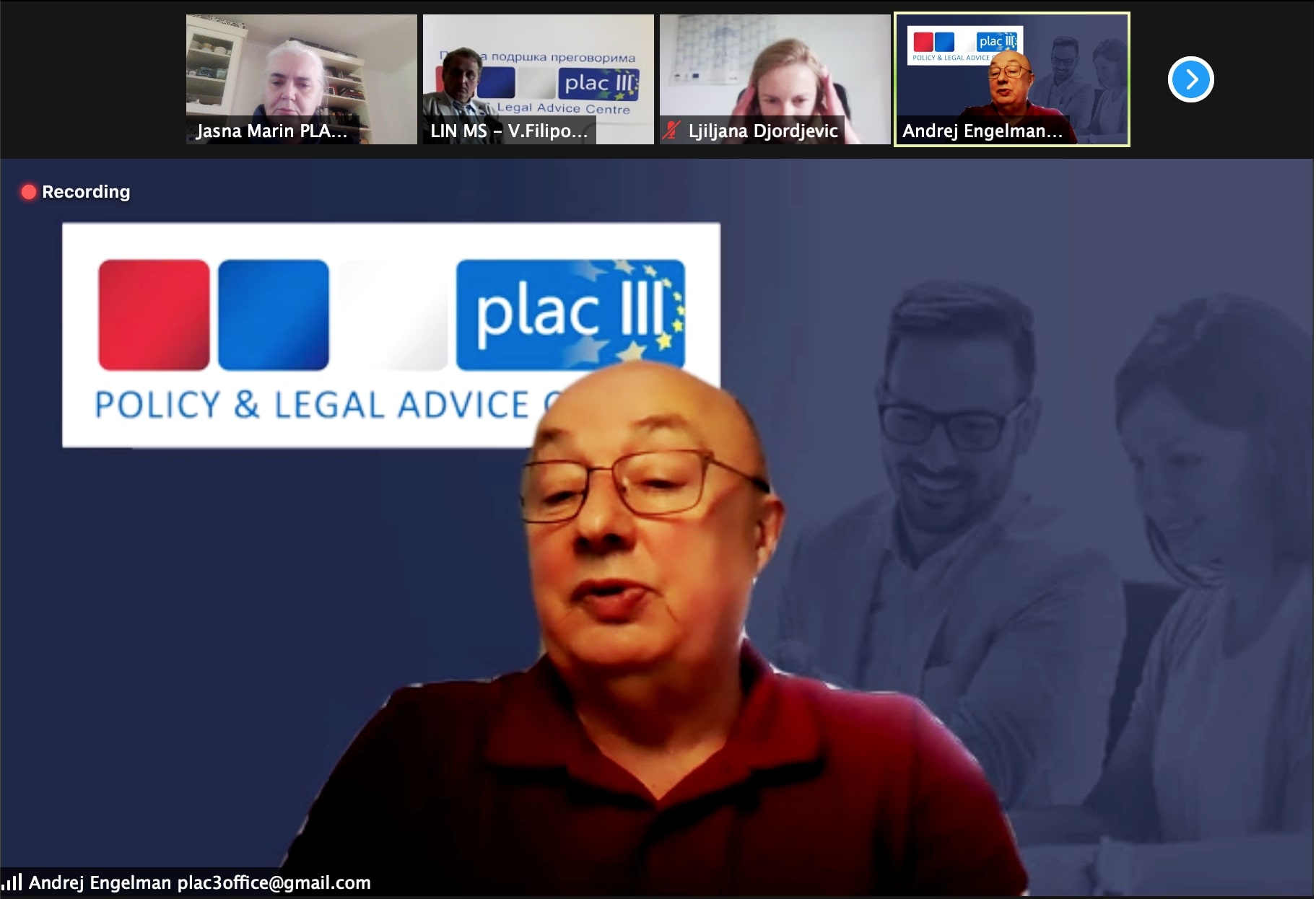A guide for the sanation and remediation of existing non-sanitary landfills for municipal waste was presented at a workshop organized by the PLAC III project on 28 May 2021. The workshop was attended by the representatives of the Ministry of Environmental Protection and stakeholders.
Serbia has largely transposed the Directive on the landfill of waste (1999/31/EC) through amendments to the Law on Waste Management, as well as through the Regulation on Waste Landfilling, and the full transposition into national legislation is expected by the end of the year. The provisions of the Waste Framework Directive 2008/98/EC have been transposed into domestic law, but most landfills do not yet meet the requirements prescribed by law. Also, Serbia has yet to transpose the new Directive 2018/850, which amends the Directive on he landfill of waste.
PLAC III has provided support to the Ministry of Agriculture, Water Management and Forestry in the transposition of the relevant Union acquis and the drafting of a bylaw – the Proposal of the Rulebook on landfills and landfill closure. Project expert Vladimir Filipović shared the experiences of an EU member state (Malta) in closing a large landfill by a procedure after which it is estimated that it would take as much as 30 years to renovate the site. The procedure includes environmental risk assessment, selection of remediation technology (natural stabilisation, engineering coating, emission control …), as well as remediation strategies. The biggest risk was the impact on the air, so the installation and maintenance of the gas emission control system was put in the first place. Gas collection in the landfill itself has been done by steel systems in which a mesh structure is installed. Throughout the remediation process, it is important to perform a quantitative risk assessment, Filipović stressed.
Filipović said that the same methodology was included in the part of the Serbian Rulebook for the development of projects for the rehabilitation and remediation of existing non-sanitary landfills for municipal waste, because it contains the necessary technical principles.
According to the Environmental Protection Agency (SEPA), which collects data on unsanitary and other landfills, there are 11 sanitary landfills, 180 unsanitary landfills in Serbia that do not meet the criteria to be called landfills and more than 3,000 illegal landfills, SEPA representative Ljiljana Đorđević conveyed to the workshop. She stated that as of 2018, local self-governments are legally bond to respect the Rulebook on the manner of keeping records, expressing hope that the submission of data will be standardised after that. In the year of 2019, 137 local self-government units reported landfills existing in their territories, but most of them do not have any projects for their rehabilitation, Đorđević said.
The workshop was attended by representatives of the Ministry of Environmental Protection, SEPA, the Institute of Water Management “Jaroslav Černi” and the local government of the City of Valjevo.





